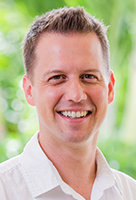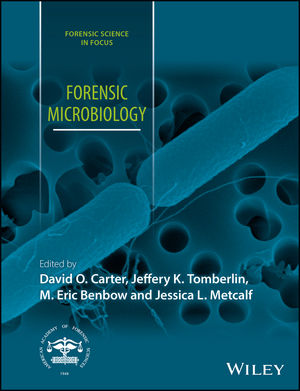When crime scene investigators discover small bone fragments, it’s often difficult to initially determine if the remains are animal or human.
Conducting a costly and time-consuming DNA analysis in a laboratory is one way to resolve the question. Or, as Chaminade University lecturer Carlos A. Gutierrez points out, a much simpler and far less expensive examination could reveal the answer on site that same day.
Gutierrez specializes in forensic microanthropology, a new field of study with broad implications for crime scene investigators around the world – especially those working in economically disadvantaged countries and in small towns with limited resources.
As part of his research, Gutierrez developed a bone identification technique involving polarized microscopy analysis.
 “You can get very good information and quick answers for families,” according to Gutierrez, who earned a master’s degree in Forensic Sciences from Chaminade in 2016. “If the bone fragments are from a human, you go to the next step – DNA analysis.” But if the remains are from an animal, he said, the probe can stop there.
“You can get very good information and quick answers for families,” according to Gutierrez, who earned a master’s degree in Forensic Sciences from Chaminade in 2016. “If the bone fragments are from a human, you go to the next step – DNA analysis.” But if the remains are from an animal, he said, the probe can stop there.
“Lots of police departments could use forensic microanthropology for crime scene investigations,” Gutierrez added. “That’s my goal – to spread the word.”
Along with spreading the word among Chaminade students, Gutierrez recently presented his research and conducted workshops at the third UCENM International Forensic Sciences Conference in Honduras, and at the fifth Forensic Sciences, Law and Public Safety International Conference in Acapulco, Mexico.
Before coming to Chaminade, Gutierrez served as director of a criminalistics laboratory in his native Chile, where he notably led efforts to identify victims of two massive disasters. One tragedy involved a deadly fire in 2007 at a hostel in Punta Arenas, and the other was a 2010 earthquake and tsunami that devastated the city of Constitution.
Two years ago, Gutierrez and his wife Ana Acuna founded Honolulu-based True Forensic Science, LLC with guidance from the Hogan Entrepreneurs Program at Chaminade. Their company provides training, consulting and products in the forensic sciences, especially for clients in Latin American countries.
Chaminade University’s Division of Natural Sciences and Mathematics offers a bachelor of science degree and a minor in Forensic Sciences. Students enrolled in these programs can prepare for careers in biology, medicine, pharmacy, anthropology, criminal justice, psychology, law and other fields.



 Chaminade University of Honolulu today announced a grant of $1 million from the
Chaminade University of Honolulu today announced a grant of $1 million from the 






